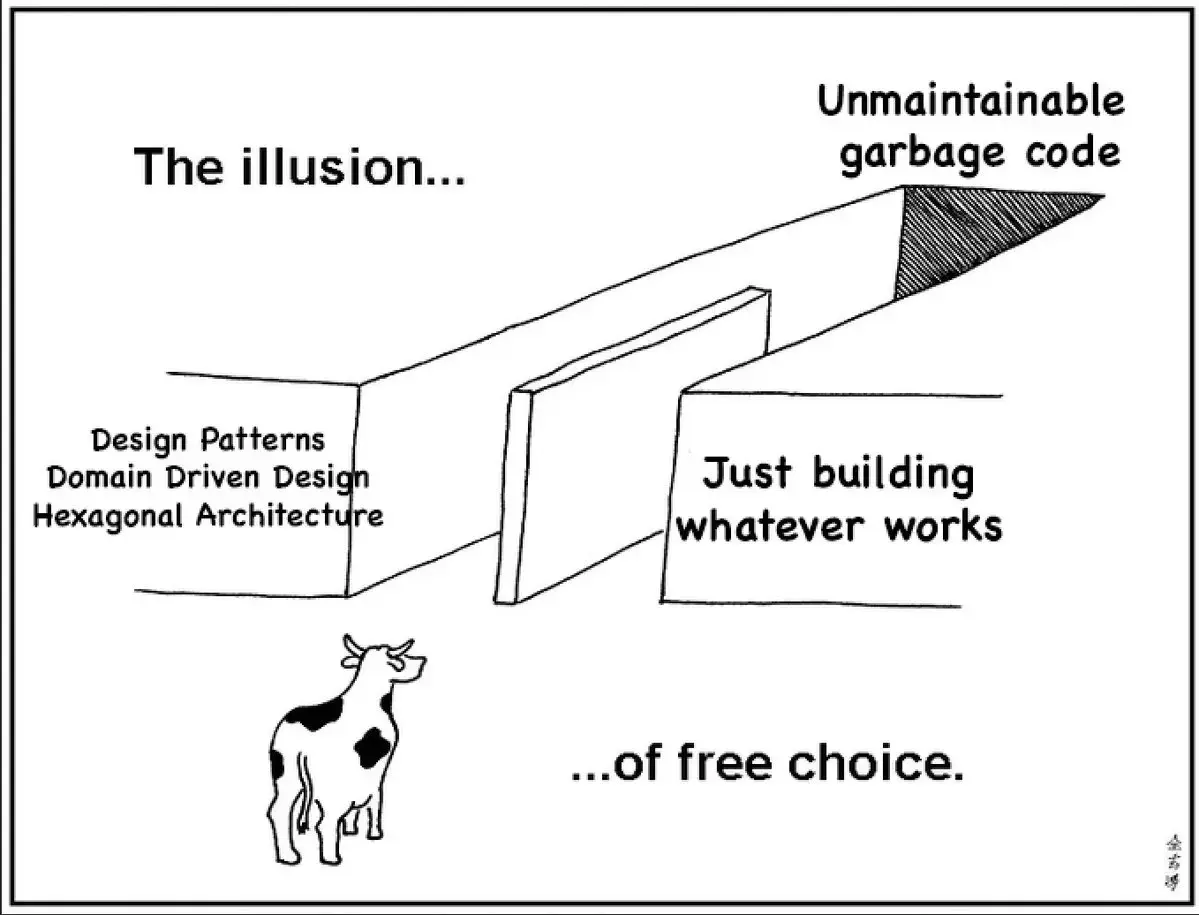this post was submitted on 12 Apr 2024
803 points (98.8% liked)
Programmer Humor
22260 readers
191 users here now
Welcome to Programmer Humor!
This is a place where you can post jokes, memes, humor, etc. related to programming!
For sharing awful code theres also Programming Horror.
Rules
- Keep content in english
- No advertisements
- Posts must be related to programming or programmer topics
founded 2 years ago
MODERATORS
you are viewing a single comment's thread
view the rest of the comments
view the rest of the comments

This is so true.
Even if you do design clean modular code and document it, you’re getting a question a year from now about how it works, or someone just duct tapes on top of it.
I've even experienced this in the 3D printing community, where I design a highly parametric model and put lots of effort into making all of the major dimensions and qualities parameterized and dynamically adjustable, with lots of bounds checking and value clamping, with all the parameters at the top of my scad file with comments explaining what each variable does.
And then someone comes along to remix my model, says I don't want to install openscad, and just scales the entire output stl to change the dimensions, squashing all the features of the model in the process (instead of having the size gracefully adjust with all the features moving around to account), and leaving anybody starting from their work with a hard to remix mesh with no parameters.
Or business decides all specs and design decisions that were made last quarter were actually garbage and yes we do want to be able to manually override every step of the carefully designed state machine. We'd like to be able to manually change all calculated sales data, but also the data needs to remain in a consistent state at all times. Oh and while you're there, we decided the commission calculations will use a different system from now on. We expect it to be online by the end of the week, thanks.
The closest I got to this kind of job., is the closest I got to running away. I'm much happier elsewhere now.
Bless your heart.
In my experience, this often doesn’t happen. So many developers are either inexperienced or cowboys, and there’s nothing inherently wrong with either. But at places where projects are small and numerous, teams often end up with nothing but a combination of the two.
As one of our office’s engineering “fixers”, I’ve taken over maintenance of several such projects. They usually have shattered remnants of code taken from other projects, open source libraries, internal libraries, stack overflow, and so on. Whole source files copied into the project, modified in ways that introduce impressive new failure cases while failing to add new functionality, and used in ways that completely ignore the features natively implemented in that code while those same features are bodged in as barely-working piles of if statements, balanced on a knife’s edge to avoid triggering the failure modes added by the project’s modifications of the copied code. I’m usually able to purge 20-30k lines of code from such projects in the first month, simultaneously closing multiple outstanding issues the PM had been led to believe were intractable.
That probably sounds like arrogance and/or shitting on everybody else’s work but it’s just reality at many workplaces due to a pace driven by unreasonable expectations from management. I just happen to be the person here that ends up sifting through the wreckage when a project reaches the inevitable osteoporosis phase, because of a natural disposition for reverse engineering. It would be great to escape for this and other reasons, as far as I can tell, most places aren’t that different.
This can work for junior devs who aren't stuck in their ways. Unfortunately there are too many "senior" devs who are happy making crap. It's hard to fight them constantly to do things properly (e.g. write actual commit messages rather than just "Fix #836") so using tools like linters where possible is definitely a big improvement.
The 'document' part also seems to be insanely hit-or-miss from my amateur experience. Self-documenting design/code is... well, not. Auto-generated documentation is also usually just as bad IMO. Producing good documentation really is a skill in and of itself.
Also small personal opinion: If your abstraction layers or algorithms are based off a technical concept, you should probably attribute that concept and provide links to further research, to eliminate future ambiguity or in case your reader lacks that background. Future you will probably thank you and anyone like me who immediately gets lost in jargon soup will also be thankful.